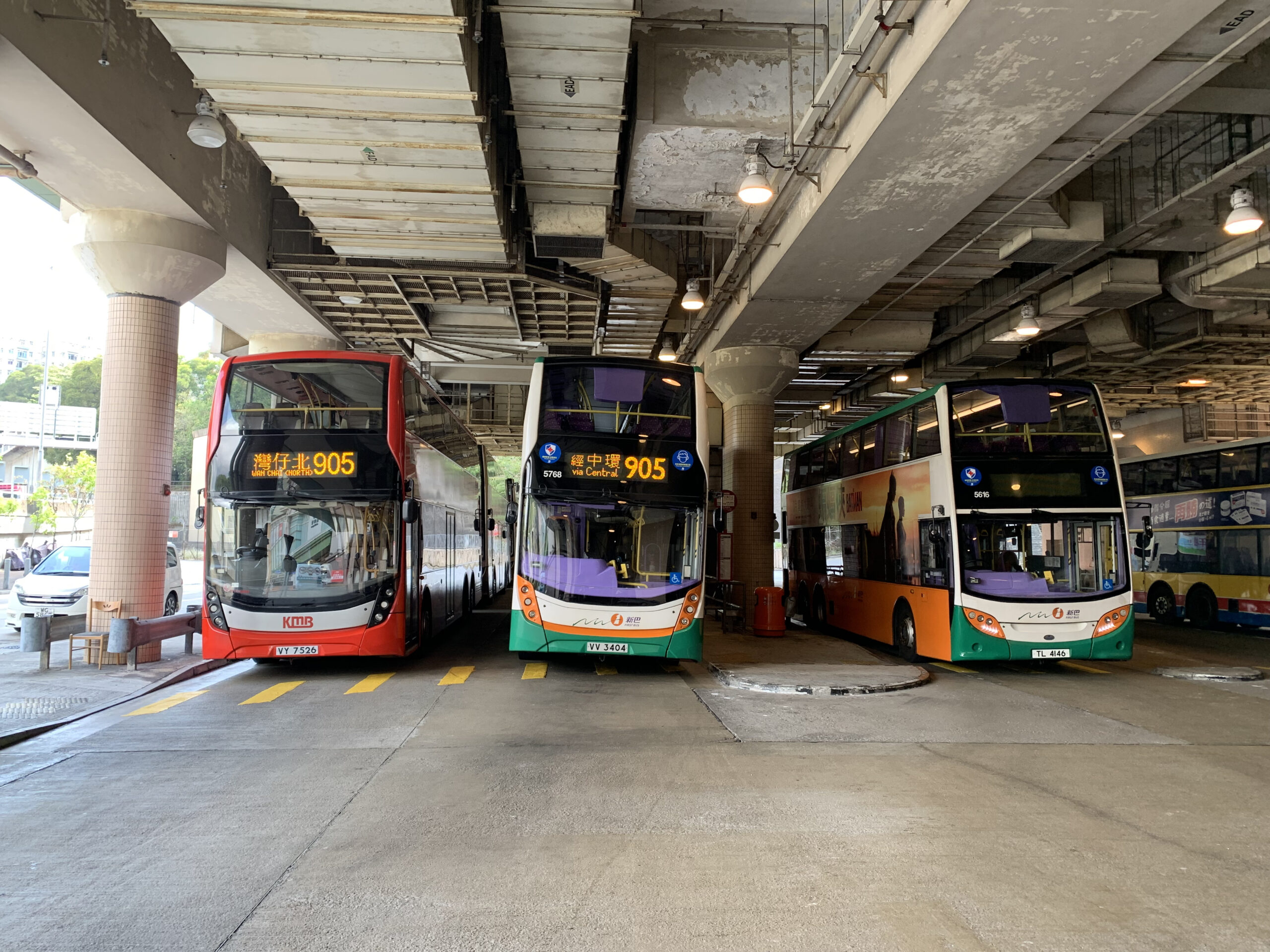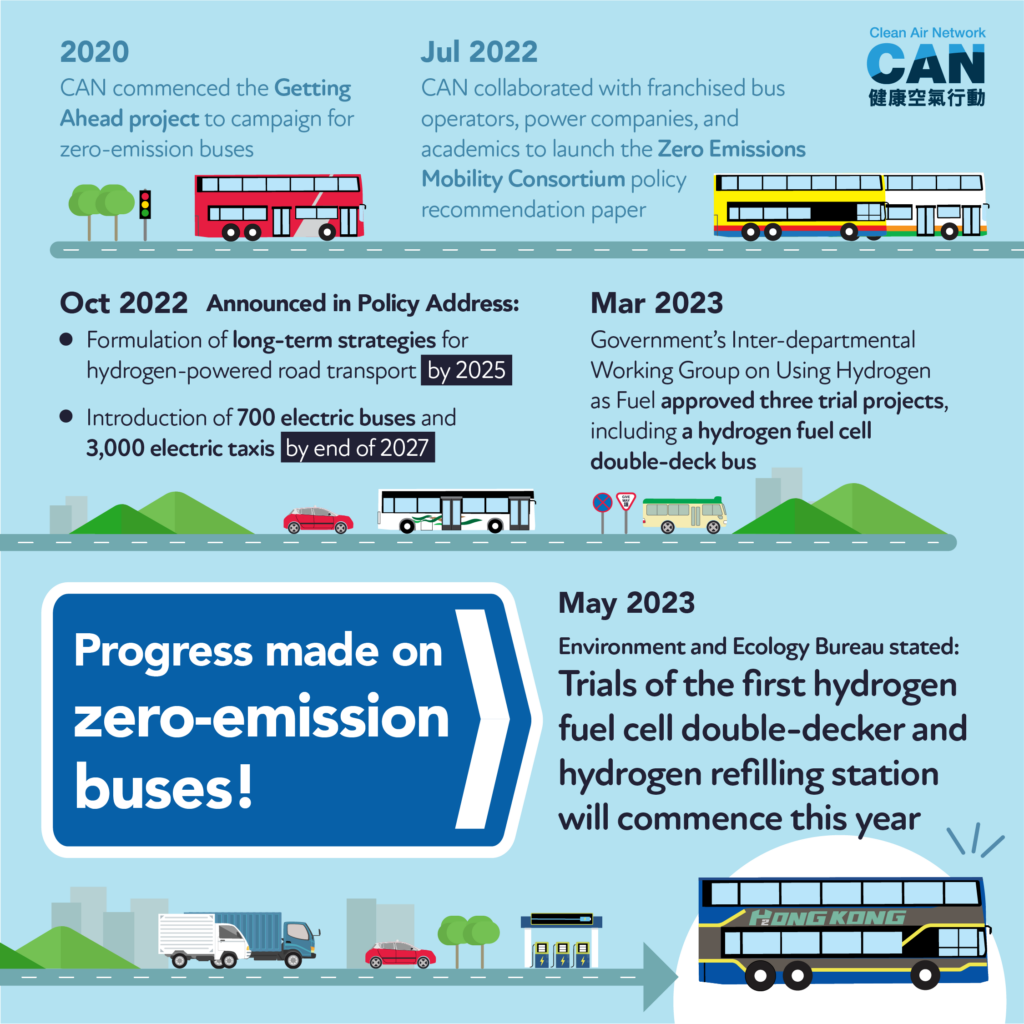
First Hydrogen-powered Double-deck Bus to Hit the Road This Year
Commercial vehicles are the main source of roadside air pollution in Hong Kong, but progress in reducing emissions has been slow. Take franchised buses as an example, at present merely less than 1% of the fleet has been electrified. 99% of the buses are still diesel vehicles, emitting pollutants that are hazardous to public health.
To promote zero-emission transport and improve air quality, Clean Air Network (CAN) launched the Getting Ahead campaign in 2020 to raise awareness through research and public education, so as to urge the government and stakeholders to take immediate actions to accelerate the zero-emission transition.
In July 2022, CAN formed an unprecedented alliance with the three major franchised bus companies, energy companies and academics, named the Zero Emission Mobility Consortium, to launch a policy recommendation paper to seek opportunities to work with the government on this issue.
Nearly a year has passed – what progress has been made on zero-emission buses?
October 2022: The Policy Address announced the formulation of long-term strategies for hydrogen-powered road transport by 2025, and the introduction of 700 electric buses and 3,000 electric taxis by the end of 2027.
March 2023: The Inter-departmental Working Group on Using Hydrogen as Fuel led by the Environment and Ecology Bureau gave an agreement-in-principle to three applications of trial projects on hydrogen fuel technology, including Citybus’ hydrogen fuel cell (HFC) double-deck bus, hydrogen refuelling facility at a Citybus depot, and a hydrogen extraction facility at a Towngas plant.
May 2023: The Environment and Ecology Bureau stated that the trial of the first hydrogen-powered double-deck bus and hydrogen refuelling station will commence this year.

Earlier this month, the Inter-departmental Working Group on Using Hydrogen as Fuel approved three more trial projects, which include a hydrogen refuelling station, hydrogen fuelled light rail vehicle, and the use of a hydrogen tube trailer to deliver hydrogen to a hydrogen fuelled LRV.
Hydrogen-powered vehicles do not emit greenhouse gases and air pollutants, and have a shorter charging time and greater range than battery-electric vehicles. We are pleased to see the introduction of hydrogen vehicles to Hong Kong for trial so that the most suitable vehicle type and mode of operation can be identified as soon as possible.
The Policy Address has set a quantitative target for bus electrification, which sets a clear direction, but it is hardly aggressive. 700 electric buses are promised to be introduced in five years, which only accounts for about 12% of the franchised bus fleet. According to an opinion survey conducted by CAN in 2021, 50% of the public believe that at least 50% of franchised buses should be zero-emission by 2030, reflecting a gap between current policy goals and public expectations. On the other hand, the government will not announce the roadmap for the electrification of public transport and commercial vehicles until 2025.
We urge the government to swiftly set a clear target to speed up the implementation of zero-emission buses, and at the same time, actively promote the electrification of other commercial vehicles, including medium and heavy goods vehicles, taxis and public light buses, so that the citizens of Hong Kong can enjoy clean and healthy air.

